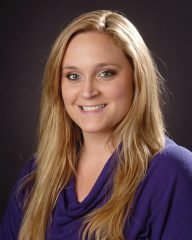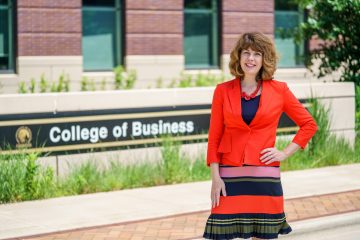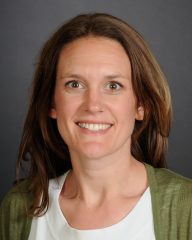As the University of Wisconsin Oshkosh’s Class of 2018 readies to enter the workforce this spring, employers also are prepping for the latest influx of new professionals.

Betts
UW Oshkosh alumna Amanda Betts ’10, the North American marketing director for ManpowerGroup based in Milwaukee, said employers today are looking for graduates who are adaptable to quickly changing technology needs.
ManpowerGroup, which has grown from one office in Milwaukee in 1948 to a $19 billion business, was named the “Best Company to Work for Women” in the U.S. in 2018.
Betts said instead of looking for the “perfect” employee, employers should focus on candidates who have strong soft skills and the ability to interact effectively. “Leadership needs to offer education and allow employees the opportunity and flexibility to scale up their skills.”
Options for professional development are among the opportunities employers should consider offering employees.

Rau
“With a talent shortage looming, employers will once again be competing to be employers of choice,” said Barbara Rau, UWO College of Business dean. “In this generation, that means helping employees to balance work with the many other aspects necessary for a rich, fulfilling life: good relationships, mental and physical health, intellectual growth, financial stability throughout a lifetime, career growth, and a deeper connection to the world around us.”
Companies that help employees grow are important for a “productive working society,” Rau said.
“Our time at work is often our core identity, everyone talks and shares about what they do. An employer that helps employees grow affects their lives at home and in the community.”
A better work-life balance is seen as increasingly important for reducing stress and increasing the health of Americans.
Betts said flexible work hours help employees and employers build a relationship of trust that allows “employees to have a life while they work.”
While it is difficult to measure actual hours worked, Rau said most sources indicate that Americans work more, on average, than workers in other developed countries and have less leisure time.
“Americans also tend to have more non-work demands on their time because we have a culture of ‘busy-ness,’” she said. “That means when are we are not working, we are filling our time with a variety of other obligations like volunteerism, activities, home maintenance and childcare to an extent that is not seen in other countries with better support systems in place, like better childcare.”

DeArmond
Sarah DeArmond, an associate human resource management professor who studies workplace sleepiness, said that what Americans do for a living has a “monumental impact” on how they feel about themselves. But an inability to psychologically detach from work can be detrimental to their health.
Rumination about work can affect sleeping at night and, therefore, performance during the day.
She said a trend is for companies to encourage and even set policies— that force employees to turn off their cell phones during non-work hours and use their vacation days.
Learn more:
